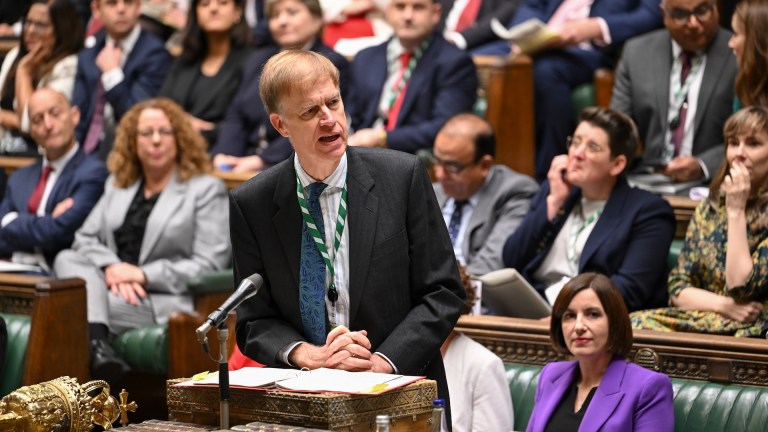A single person needs around £120 each week just to have enough to afford the essentials before housing costs, according to conservative estimates. But universal credit is only £85 each week.
This means that nine in 10 people on universal credit are going without the essentials because they can’t afford them. And 5.7 million low-income households are skipping meals because they don’t have enough money for food.
Out of desperation, people are turning to shoplifting. Laurence Guinness, the chief executive of the Childhood Trust, told The Big Issue about a mother who said her family “would all go hungry if she didn’t steal things from the supermarket”.
Guinness explained: “I asked her about her universal credit and she said that it isn’t enough to live on in London which is why she has to shoplift. She said that many of the mums she knows are doing the same because they don’t have an option. Other parents have told me they know women who have turned to sex work to keep their families afloat.”
Charities are calling for reforms to the benefits system so that it provides an adequate safety net for people who need help. The Trussell Trust and JRF are calling for an ‘essentials guarantee’ to ensure that universal credit provides people with the money they need to survive, at the very least.
Lisa Doyle, head of policy and research at the Trussell Trust said: “We know that the increasing cost of living has further increased pressure on many households’ finances, and people on the lowest incomes are being pushed even deeper into hardship.
“Research we conducted with YouGov in September does not support the view that benefits are generous, rather that people claiming universal credit are having to skip meals, reduce heating their homes and not travel to necessary appointments because they can’t afford the cost the essentials. This has led to a record number of people facing hunger and having to turn to food banks for support.
“We need a social security system that will protect people from hardship. The basic rate of universal credit must be based on an assessment of what people need, and how much these things actually cost, so it at least covers the cost of our essentials.
“We are urging the government to enshrine in law an ‘essential guarantee’ to make sure that our social security system will always protect people from going without the essentials we all need.”
One man, Myles, told The Big Issue he feels like a failure because he is struggling to afford the essentials he needs to live in the cost of living crisis. His mental health is worsening and he is eating less as his benefits are not stretching far enough.
Jamie Thunder, policy and public affairs officer at anti-poverty charity Z2K, said: “Anyone who’s ever interacted with the benefits system knows it’s far from generous. For our clients and millions of others, the cost of living crisis has been going on for years, as benefits have failed to keep up with inflation and a series of cuts and arbitrary caps have reduced their value even further.”
Philp may be correct that benefits are increasing by 6.7% in April – but experts warn that it is not enough to help people who are struggling to cope. Benefits are not expected to catch up to their pre-pandemic levels until 2026, according to the Institute for Fiscal Studies (IFS).
Thunder added: “We need a social security system that guarantees we can all afford to put food on our tables, heat our homes, and pay our bills and rent, even when times are hard. That’s only made less likely when politicians make misinformed comments like this.”
Do you have a story to tell or opinions to share about this? We want to hear from you. Get in touch and tell us more.





